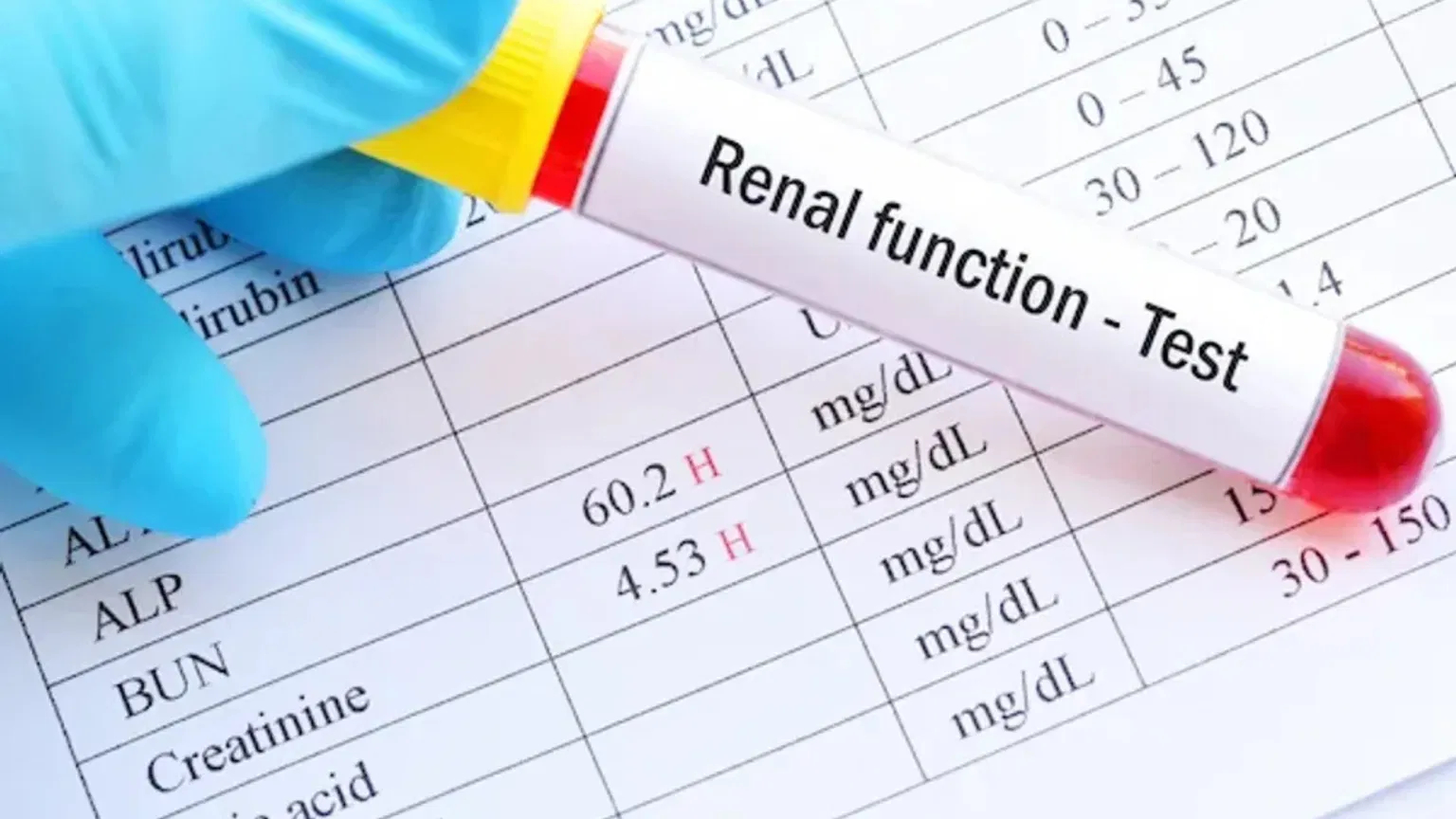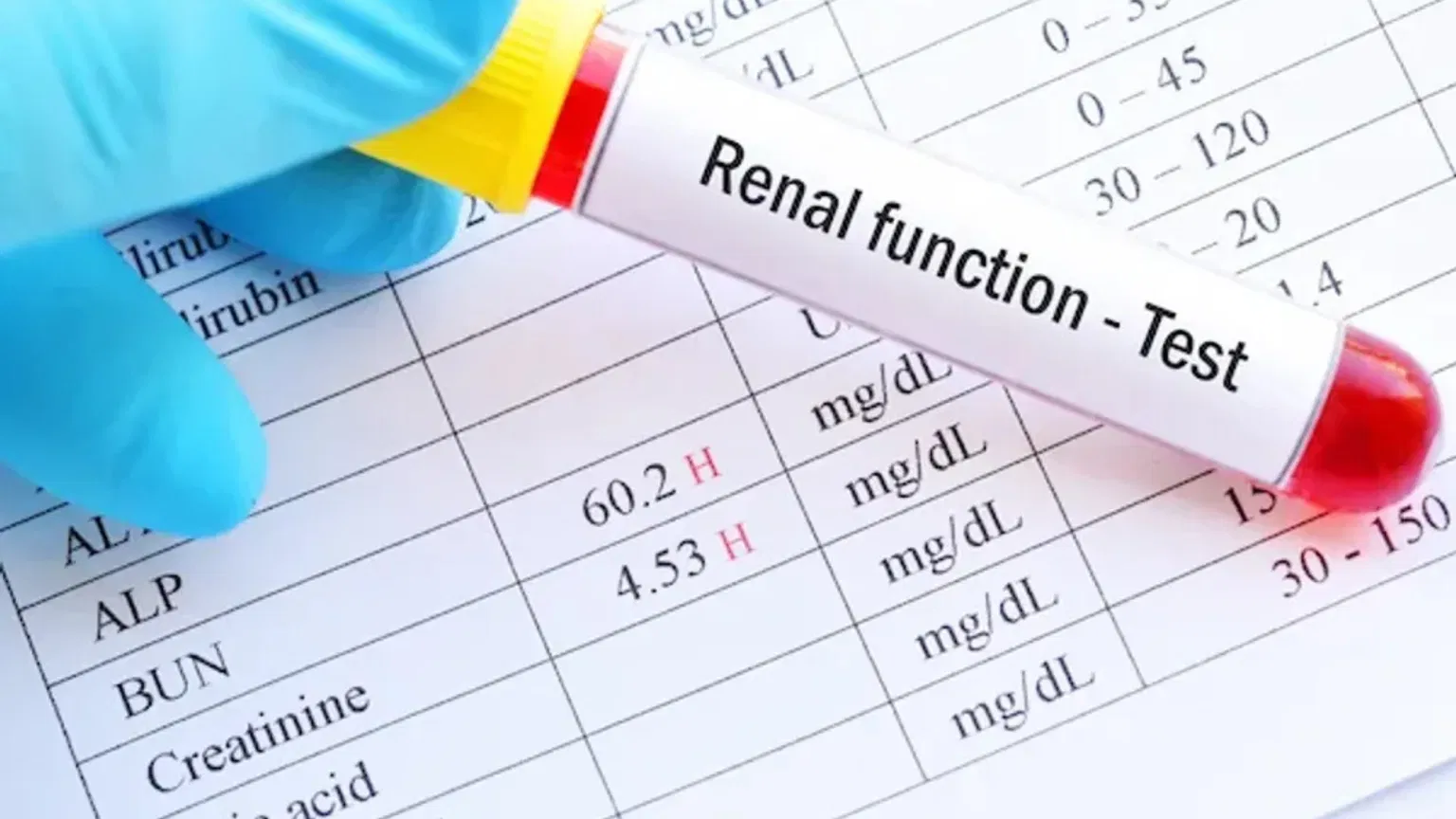Importance of Kidney Function Test (KFT)

Your kidneys silently work 24/7 to keep your body healthy. They filter toxins, maintain fluid balance, regulate minerals, and support blood pressure. Yet, kidney diseases often remain hidden until they reach an advanced stage. This is why early testing is essential — and one of the most important tests for kidney health is the Kidney Function Test (KFT).
For anyone experiencing symptoms, managing chronic health problems, or undergoing regular check-ups, KFT plays a major role in preventing complications. According to leading nephrologists like Dr. Tanmay Pandya, the best kidney doctor in South Delhi, early testing can reduce long-term kidney damage and help patients maintain healthier lives.
This blog explains everything you need to know — what a KFT measures, why it matters, and when every patient should get it done.

What Is a Kidney Function Test (KFT)?
A Kidney Function Test (KFT) is a simple blood test that evaluates how well your kidneys are working. It measures several markers in your blood to assess filtration capacity, waste removal, and electrolyte balance.
KFT is often part of routine health screenings, but it is especially recommended for people with chronic conditions or those showing early signs of kidney issues.
Many patients confuse KFT with RFT (Renal Function Test). Both tests serve a similar purpose, but RFT may sometimes include additional parameters such as calcium, phosphorus, and albumin.
What Does a KFT Measure?
A KFT is not just a single test — it includes multiple parameters that together give a complete picture of kidney health.
1. Serum Creatinine
-
Creatinine is a waste product formed by muscle metabolism.
-
Healthy kidneys remove it efficiently.
-
High creatinine levels indicate reduced kidney function.
Doctors often rely on creatinine as one of the earliest indicators of kidney disease.
2. Blood Urea Nitrogen (BUN)
-
Urea is produced when the body breaks down protein.
-
If kidneys are not filtering well, BUN levels increase.
-
Abnormal levels can also indicate dehydration or liver issues.
3. Uric Acid
-
Kidneys filter uric acid from the blood.
-
High uric acid can cause gout, kidney stones, and long-term kidney damage.
Patients with joint pain, swelling, or stone history must track this level regularly.
4. Electrolytes (Sodium, Potassium, Chloride)
These minerals help with nerve function, muscle movement, heart rhythm, and fluid balance.
-
High potassium (Hyperkalemia) can be life-threatening.
-
Low sodium may indicate kidney dysfunction or fluid overload.
Electrolyte imbalance is common in chronic kidney disease and needs immediate attention.
5. Glomerular Filtration Rate (GFR)
GFR is a critical calculation based on creatinine level, age, gender, and body size.
It estimates how well kidneys filter waste every minute.
-
GFR > 90: Normal
-
GFR 60–89: Mild reduction
-
GFR 30–59: Moderate kidney disease
-
GFR < 30: Severe disease
-
GFR < 15: Kidney failure
A decreasing GFR is a strong indicator of chronic kidney disease (CKD).
6. Other Parameters Sometimes Included
-
Calcium & Phosphorus: Show bone–kidney connection
-
Albumin: Indicates kidney’s protein leakage
-
Cystatin C: Advanced marker for better filtration assessment
These are usually suggested when a patient shows strong kidney-related symptoms.
Why Is KFT Important?
Kidney diseases progress silently. Most patients do not feel symptoms until the damage is advanced. A KFT helps detect problems early so treatment can begin on time.
Here’s why this test is extremely important:
1. Early Diagnosis of Kidney Problems
KFT helps detect early signs of:
-
Chronic kidney disease (CKD)
-
Acute kidney injury
-
Kidney infections
-
Obstruction or kidney stones
When treated early, kidney damage can be slowed or reversed.
2. Monitoring Patients With Chronic Conditions
Patients with diabetes, hypertension, or heart disease are at high risk of developing kidney problems. Regular KFTs help monitor:
-
Filtration levels
-
Electrolyte balance
-
Progression of disease
Doctors like Dr. Tanmay Pandya, kidney specialist in South Delhi, emphasize routine testing for high-risk patients.
3. Helps Adjust Medication Dosage
Some medicines can harm the kidneys if not monitored properly:
-
Painkillers (NSAIDs)
-
Blood pressure medicines
-
Antibiotics
-
Chemotherapy drugs
KFT ensures that the dose is safe and effective.
4. Prevents Severe Complications
Kidney dysfunction can lead to:
-
Swelling
-
Uncontrolled blood pressure
-
Heart rhythm issues
-
Weakness and fatigue
-
Life-threatening electrolyte imbalance
Timely testing avoids emergencies.
5. Evaluates Kidney Performance Before Major Treatment
Before surgeries, contrast scans, or long-term treatments, doctors order KFT to ensure the kidneys can handle the stress.
When Should a Patient Get a KFT Done?
Many patients wonder how often they need this test. The answer depends on their health condition and symptoms.
Here’s a detailed guide:
1. Routine Annual Check-Ups
Every adult should undergo a KFT once a year — even with no symptoms.
Early detection saves kidneys.
2. People With High-Risk Conditions
You MUST get a KFT done every 6–12 months if you have:
-
Diabetes
-
High blood pressure
-
Heart disease
-
Obesity
-
High cholesterol
-
Family history of kidney disease
These conditions slowly damage kidneys over time.
3. Patients Showing Warning Symptoms
If you experience any of the following, get a KFT immediately:
-
Swelling in feet, ankles, or face
-
Sudden weight gain
-
Reduced or foamy urine
-
Blood in urine
-
Persistent fatigue
-
Nausea or vomiting
-
Loss of appetite
-
Shortness of breath
-
Lower back or flank pain
These signs often indicate declining kidney function.
4. Before Starting or Changing Medication
Especially before starting:
-
Painkillers
-
Blood pressure medicines
-
Chemotherapy
-
Antibiotics (certain types)
Doctors use KFT results to prescribe a safe dose.
5. During Pregnancy
KFT is important in pregnancy to:
-
Monitor blood pressure-related changes
-
Check for preeclampsia risk
-
Ensure mother and baby’s kidney health
6. After Severe Dehydration or Infection
Conditions like:
-
Dengue fever
-
Long-term diarrhea
-
Urinary tract infections
-
Kidney infections
These can affect kidney function temporarily or permanently.
How Is a KFT Performed?
A KFT is simple, quick, and painless.
-
A small blood sample is taken from a vein.
-
Usually, no fasting is required.
-
Reports are available within a few hours.
Patients can resume normal activities immediately after the test.
Understanding Your KFT Results
Many patients panic when they see elevated creatinine or abnormal electrolytes. But remember — only a kidney specialist can interpret the values correctly.
General guidelines:
-
High creatinine → Possible kidney damage
-
Low GFR → Decreasing kidney efficiency
-
High uric acid → Risk of stones or gout
-
High potassium → Requires urgent medical care
-
Protein or albumin changes → Possible early kidney disease
If your results are abnormal, consult an expert like Dr. Tanmay Pandya, the best kidney doctor in South Delhi, for proper evaluation.
How to Maintain Healthy Kidney Function
While KFT helps diagnose and monitor kidney health, lifestyle plays an important role in protecting your kidneys.
1. Drink Adequate Water
Hydration helps flush toxins and prevent stones.
2. Control Blood Sugar & Blood Pressure
Diabetes and hypertension are leading causes of kidney disease.
3. Reduce Salt Intake
Too much salt increases kidney workload and blood pressure.
4. Avoid Overuse of Painkillers
NSAIDs can silently damage your kidneys.
5. Maintain a Healthy Weight
Obesity increases the risk of chronic kidney disease.
6. Limit Alcohol and Quit Smoking
Both reduce blood flow to kidneys and worsen damage.
7. Get Regular Check-Ups
Especially if you fall in the high-risk category.
Conclusion
Kidneys play a vital role in keeping your body healthy, and a Kidney Function Test (KFT) is one of the most reliable ways to monitor their performance. Whether you have chronic conditions like diabetes or hypertension, are experiencing warning symptoms, or simply want to stay healthy, regular KFTs can help detect kidney issues early and prevent long-term damage.
If your test results are abnormal or you need expert evaluation, consulting a specialist is essential. Dr. Tanmay Pandya, the best kidney doctor in South Delhi, offers comprehensive kidney care, accurate diagnosis, and patient-centered treatment plans to help you maintain optimal kidney health.
Early detection saves kidneys — and your health. Never ignore symptoms, and schedule your kidney evaluation on time.
- Live Stream
- Causes
- Crafts
- Dance
- Drinks
- Film
- Fitness
- Food
- Giochi
- Gardening
- Health
- Home
- Literature
- Music
- Networking
- Altre informazioni
- Party
- Religion
- Shopping
- Sports
- Theater
- Wellness
- Art
- Life
- Coding




